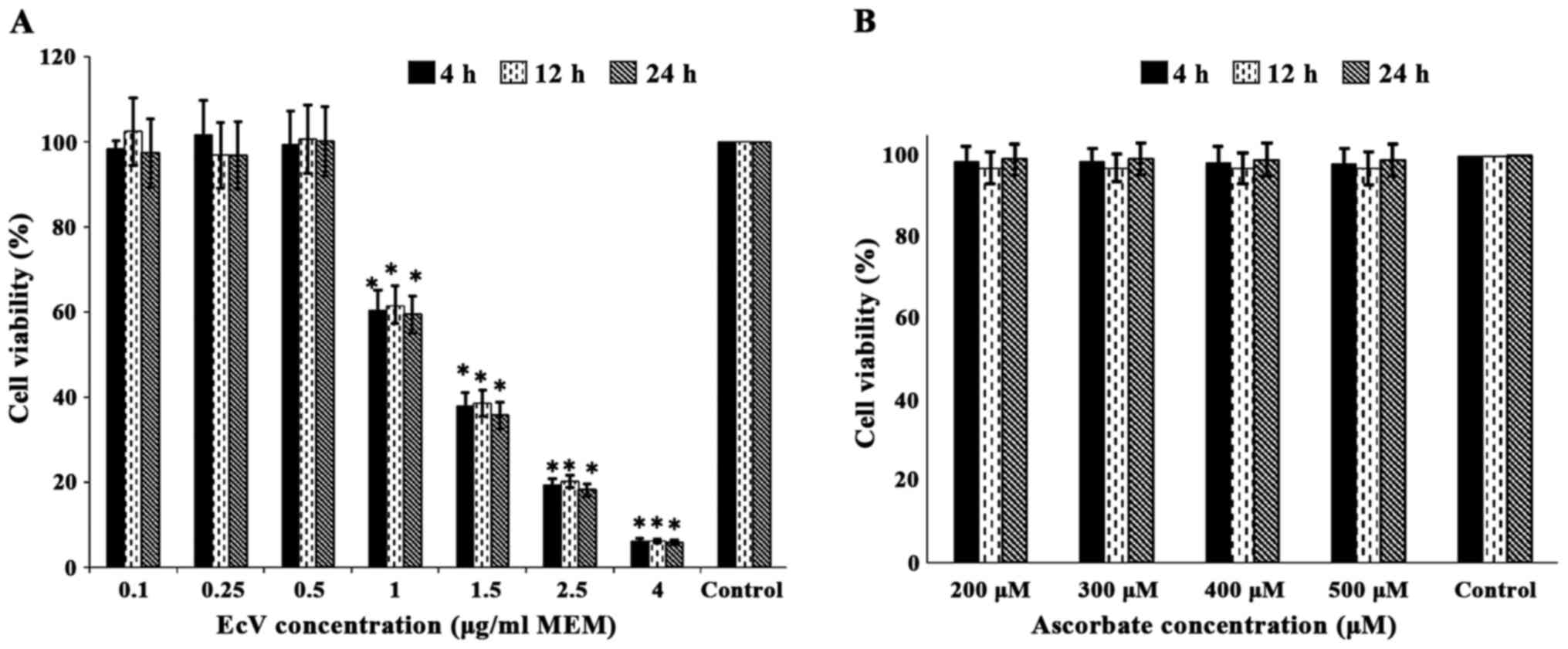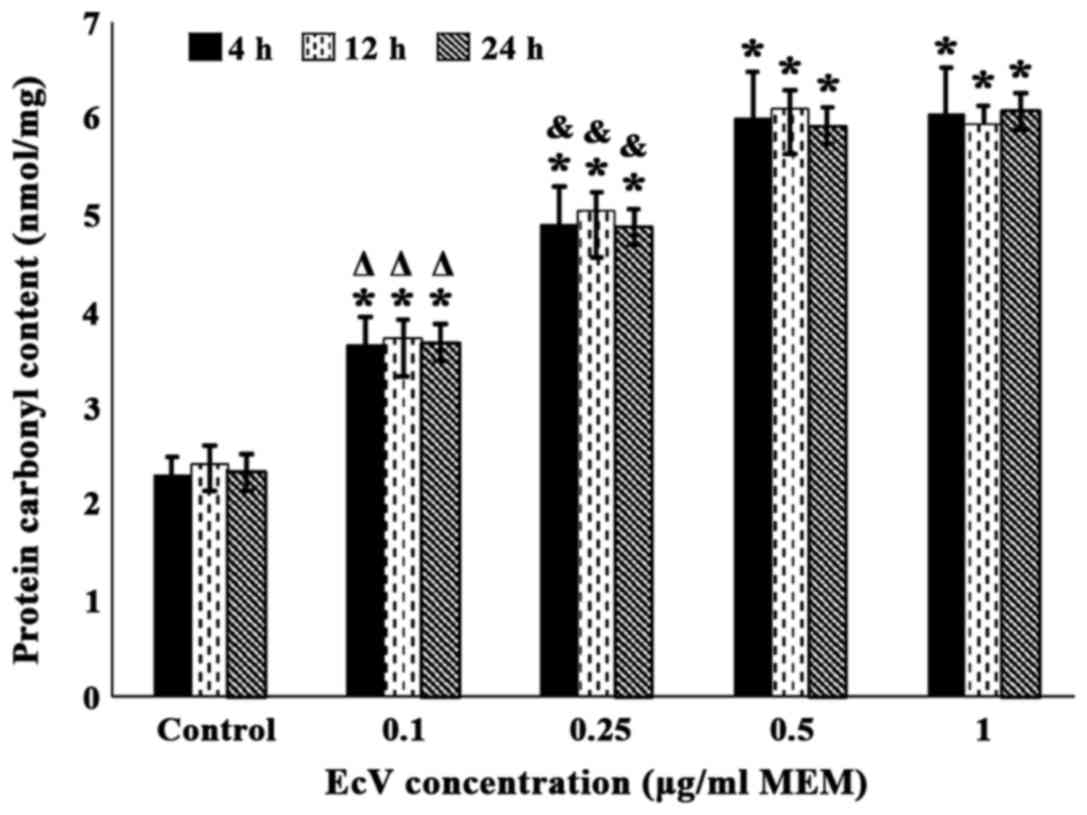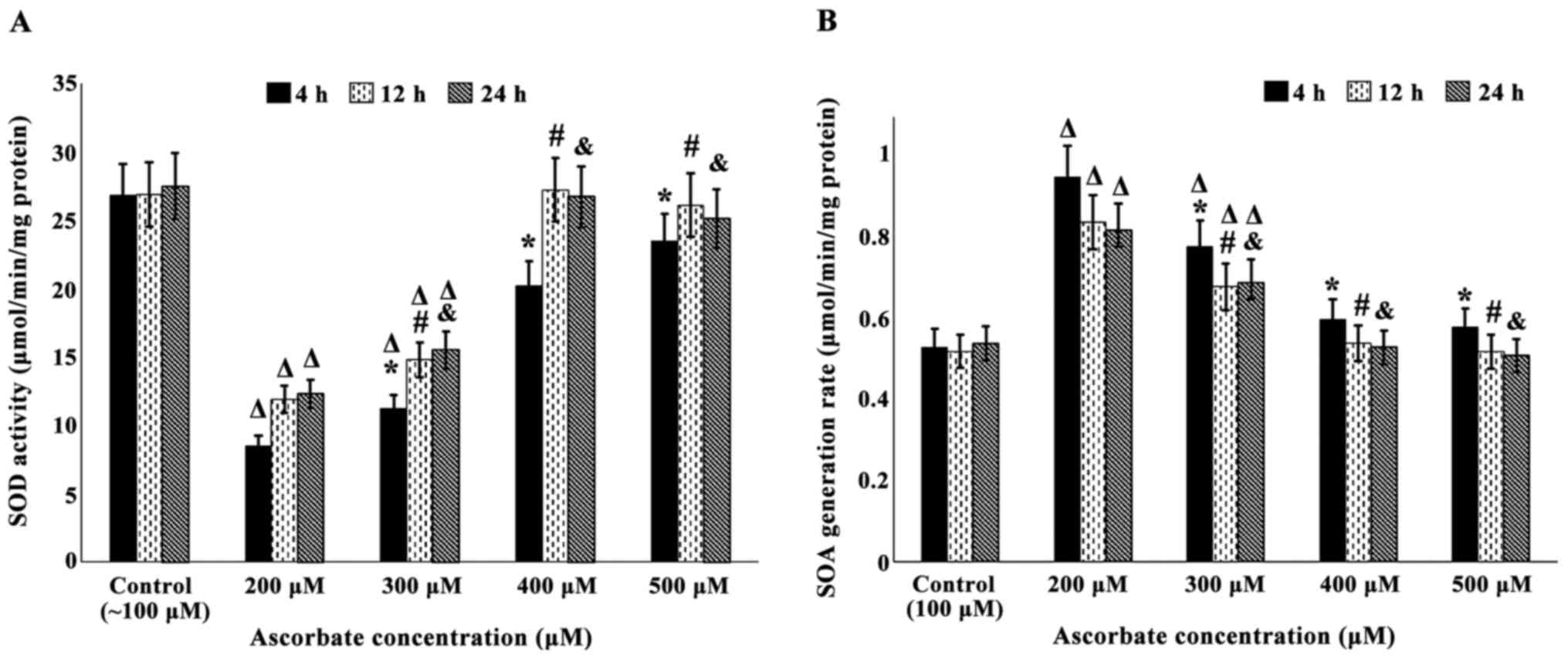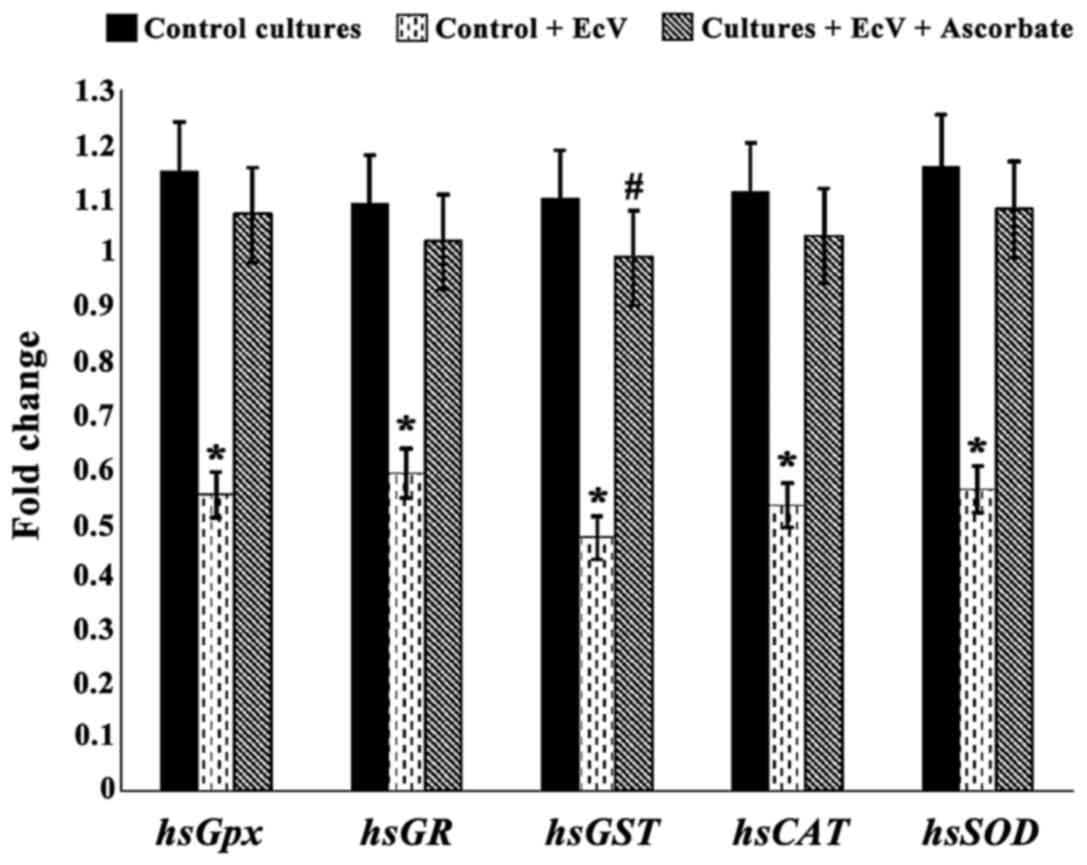|
1
|
Mallow D, Ludwig D and Nilson G: True
Vipers: Natural History and Toxinology of Old World Vipers. Kreiger
Publication Company; Malabar, FL: 2003
|
|
2
|
Serrano SM, Shannon JD, Wang D, Camargo AC
and Fox JW: A multifaceted analysis of viperid snake venoms by
two-dimensional gel electrophoresis: an approach to understanding
venom proteomics. Proteomics. 5:501–510. 2005. View Article : Google Scholar : PubMed/NCBI
|
|
3
|
Mackessy SP: Handbook of Venoms and Toxins
of Reptiles. CRC press; Boca Raton, FL: 2009, View Article : Google Scholar
|
|
4
|
Kini RM: Excitement ahead: structure,
function and mechanism of snake venom phospholipase A2 enzymes.
Toxicon. 42:827–840. 2003. View Article : Google Scholar : PubMed/NCBI
|
|
5
|
Al-Jammaz I: Physiological effects of LD50
of Echis coloratus crude venom on rat at different time intervals.
J King Saud Univ Sci. 15:121–129. 2003.
|
|
6
|
Al-Asmari AK, Manthiri RM Abbas, Osman
NMA, Al-Otaibi AF and Al-Asmari SA: Beneficial role of quercetin on
Echis coloratus snake venom induced hepato-renal toxicity in rats.
J Biol Sci. 16:112–119. 2016. View Article : Google Scholar
|
|
7
|
Annobil SH: Complications of Echis
colorata snake bites in the Asir region of Saudi Arabia. Ann Trop
Paediatr. 13:39–44. 1993. View Article : Google Scholar : PubMed/NCBI
|
|
8
|
Boviatsis EJ, Kouyialis AT, Papatheodorou
G, Gavra M, Korfias S and Sakas DE: Multiple hemorrhagic brain
infarcts after viper envenomation. Am J Trop Med Hyg. 68:253–257.
2003.PubMed/NCBI
|
|
9
|
Fernandez S, Hodgson W, Chaisakul J,
Kornhauser R, Konstantakopoulos N, Smith AI and Kuruppu S: In vitro
toxic effects of puff adder (Bitis arietans) venom, and their
neutralization by antivenom. Toxins (Basel). 6:1586–1597. 2014.
View Article : Google Scholar : PubMed/NCBI
|
|
10
|
Murphy MP: How mitochondria produce
reactive oxygen species. Biochem J. 417:1–13. 2009. View Article : Google Scholar : PubMed/NCBI
|
|
11
|
Sena LA and Chandel NS: Physiological
roles of mitochondrial reactive oxygen species. Mol Cell.
48:158–167. 2012. View Article : Google Scholar : PubMed/NCBI
|
|
12
|
Pickering AM, Vojtovich L, Tower J and A
Davies KJ: Oxidative stress adaptation with acute, chronic, and
repeated stress. Free Radic Biol Med. 55:109–118. 2013. View Article : Google Scholar : PubMed/NCBI
|
|
13
|
Cai Z and Yan LJ: Protein oxidative
modifications: beneficial roles in disease and health. J Biochem
Pharmacol Res. 1:15–26. 2013.PubMed/NCBI
|
|
14
|
Aboul-Soud MA, Al-Othman AM, El-Desoky GE,
Al-Othman ZA, Yusuf K, Ahmad J and Al-Khedhairy AA:
Hepatoprotective effects of vitamin E/selenium against
malathion-induced injuries on the antioxidant status and
apoptosis-related gene expression in rats. J Toxicol Sci.
36:285–296. 2011. View Article : Google Scholar : PubMed/NCBI
|
|
15
|
Nordberg J and Arnér ES: Reactive oxygen
species, antioxidants, and the mammalian thioredoxin system. Free
Radic Biol Med. 31:1287–1312. 2001. View Article : Google Scholar : PubMed/NCBI
|
|
16
|
Valko M, Leibfritz D, Moncol J, Cronin MT,
Mazur M and Telser J: Free radicals and antioxidants in normal
physiological functions and human disease. Int J Biochem Cell Biol.
39:44–84. 2007. View Article : Google Scholar : PubMed/NCBI
|
|
17
|
Al Asmari AK, Khan HA, Manthiri RA, Al
Yahya KM and Al Otaibi KE: Effects of Echis pyramidum snake venom
on hepatic and renal antioxidant enzymes and lipid peroxidation in
rats. J Biochem Mol Toxicol. 28:407–412. 2014. View Article : Google Scholar : PubMed/NCBI
|
|
18
|
Yamasaki SC, Villarroel JS, Barone JM,
Zambotti-Villela L and Silveira PF: Aminopeptidase activities,
oxidative stress and renal function in Crotalus durissus terrificus
envenomation in mice. Toxicon. 52:445–454. 2008. View Article : Google Scholar : PubMed/NCBI
|
|
19
|
Valenta J, Stach Z and Svítek M: Acute
pancreatitis after viperid snake cerastes cerastes envenoming: a
case report. Prague Med Rep. 111:69–75. 2010.PubMed/NCBI
|
|
20
|
Sagheb MM, Sharifian M, Moini M and Salehi
O: Acute renal failure and acute necrotizing pancreatitis after
Echis carinatus sochureki bite, report of a rare complication from
southern Iran. Prague Med Rep. 112:67–71. 2011.PubMed/NCBI
|
|
21
|
Dousset E, Carrega L, Steinberg JG,
Clot-Faybesse O, Jouirou B, Sauze N, Devaux C, Autier Y, Jammes Y,
Martin-Eauclaire MF and Guieu R: Evidence that free radical
generation occurs during scorpion envenomation. Comp Biochem
Physiol C Toxicol Pharmacol. 140:221–226. 2005. View Article : Google Scholar : PubMed/NCBI
|
|
22
|
Al Asmari A, Al Moutaery K, Manthari RA
and Khan HA: Time-course of lipid peroxidation in different organs
of mice treated with Echis pyramidum snake venom. J Biochem Mol
Toxicol. 20:93–95. 2006. View Article : Google Scholar : PubMed/NCBI
|
|
23
|
Asmari AK, Khan HA, Banah FA, Buraidi AA
and Manthiri RA: Serum biomarkers for acute hepatotoxicity of Echis
pyramidum snake venom in rats. Int J Clin Exp Med. 8:1376–1380.
2015.PubMed/NCBI
|
|
24
|
Onyeama HP, Ebong PE and Eteng MU:
Evaluation of the effects of Calliandra portoricensis extracts on
oxidative stress enzymes in Wistar rats challenged with venom of
Echis oscellatus. J Appl Pharm Sci. 2:199–202. 2012.
|
|
25
|
Tohamy AA, Mohamed AF, Moneim AE Abdul and
Diab MSM: Biological effects of Naja haje crude venom on hepatic
and renal tissues of mice. J King Saud Univ Sci. 26:205–212. 2014.
View Article : Google Scholar
|
|
26
|
Halliwell B: Vitamin C: antioxidant or
pro-oxidant in vivo? Free Radic Res. 25:439–454. 1996. View Article : Google Scholar : PubMed/NCBI
|
|
27
|
Ghneim HK and Al-Sheikh YA: The effect of
aging and increasing ascorbate concentrations on respiratory chain
activity in cultured human fibroblasts. Cell Biochem Funct.
28:283–292. 2010. View Article : Google Scholar : PubMed/NCBI
|
|
28
|
Banerjee P, Bhattacharyya SS,
Bhattacharjee N, Pathak S, Boujedaini N, Belon P and Khuda-Bukhsh
AR: Ascorbic acid combats arsenic-induced oxidative stress in mice
liver. Ecotoxicol Environ Saf. 72:639–649. 2009. View Article : Google Scholar : PubMed/NCBI
|
|
29
|
Retsky KL and Frei B: Vitamin C prevents
metal ion-dependent initiation and propagation of lipid
peroxidation in human low-density lipoprotein. Biochim Biophys
Acta. 1257:279–287. 1995. View Article : Google Scholar : PubMed/NCBI
|
|
30
|
Chen K, Suh J, Carr AC, Morrow JD, Zeind J
and Frei B: Vitamin C suppresses oxidative lipid damage in vivo,
even in the presence of iron overload. Am J Physiol Endocrinol
Metab. 279:E1406–E1412. 2000.PubMed/NCBI
|
|
31
|
ElShama SS, EL-Meghawry A, El-Kenawy AE
and Osman HE: Vitamin C daily supplements and its ameliorative
effects. Vitamin C..Guiné R: Nova Science Publishers, Inc.;
Hauppauge, NY: pp. 47–64. 2013
|
|
32
|
Klenner FR: Observations on the dose of
administration of ascorbic acid when employed beyond the range of a
vitamin in human pathology. J Appl Nutr. 23:61–68. 1971.
|
|
33
|
Khan W, Osman NA, Alahmari AM, Amaan A and
Al-Asmari A: Vitamin C protects against viper venom induced
hepatotoxicity and oxidative damage in rat liver. MOJ Toxicol.
2:000262016. View Article : Google Scholar
|
|
34
|
Mosmann T: Rapid colorimetric assay for
cellular growth and survival: application to proliferation and
cytotoxicity assays. J Immunol Methods. 65:55–63. 1983. View Article : Google Scholar : PubMed/NCBI
|
|
35
|
Ghneim HK and Alshebly MM: Biochemical
markers of oxidative stress in Saudi women with recurrent
miscarriage. J Korean Med Sci. 31:98–105. 2016. View Article : Google Scholar : PubMed/NCBI
|
|
36
|
Al-Sheikh YA and Ghneim HK: ‘The effect of
micronutrients on superoxide dismutase in senescent fibroblasts’.
Cell Biochem Funct. 29:384–393. 2011. View Article : Google Scholar : PubMed/NCBI
|
|
37
|
Habig WH, Pabst MJ and Jakoby WB:
Glutathione S-transferases. The first enzymatic step in mercapturic
acid formation. J Biol Chem. 249:7130–7139. 1974.PubMed/NCBI
|
|
38
|
Bradford MM: A rapid and sensitive method
for the quantitation of microgram quantities of protein utilizing
the principle of protein-dye binding. Anal Biochem. 72:248–254.
1976. View Article : Google Scholar : PubMed/NCBI
|
|
39
|
Reznick AZ and Packer L: Oxidative damage
to proteins: spectrophotometric method for carbonyl assay. Methods
Enzymol. 233:357–363. 1994. View Article : Google Scholar : PubMed/NCBI
|
|
40
|
Ghneim HK, Al-Sheikh YA, Alshebly MM and
Aboul-Soud MA: Superoxide dismutase activity and gene expression
levels in Saudi women with recurrent miscarriage. Mol Med Rep.
13:2606–2612. 2016.PubMed/NCBI
|
|
41
|
Al-Saleh SS, Ghneim HK, Haddad HY and Khan
SU: Separation and purification of Echis coloratus venom and some
biological and biochemical effects of the proteins. Cell Biochem
Funct. 20:153–162. 2002. View Article : Google Scholar : PubMed/NCBI
|
|
42
|
Al-Saleh S, Ghneim H and Khan S: The
effect of crude and purified Cerastes vipera venom protein
fractions on respiratory chain function in cultured human
fibroblasts. Cell Physiol Biochem. 13:315–320. 2003. View Article : Google Scholar : PubMed/NCBI
|
|
43
|
Ghneim HK, Al-Sheikh YA and Aboul-Soud MA:
The effect of Walterinnesia aegyptia venom proteins on TCA cycle
activity and mitochondrial NAD(+)-redox state in cultured human
fibroblasts. Biomed Res Int. 2015:7381472015. View Article : Google Scholar : PubMed/NCBI
|
|
44
|
Ghneim HK and Al-Sheikh YA: Effect of
selenium supplementation on glutathione peroxidase and catalase
activities in senescent cultured human fibroblasts. Ann Nutr Metab.
59:127–138. 2011. View Article : Google Scholar : PubMed/NCBI
|
|
45
|
Ghneim HK: Enzymatic variations related to
glucose and glycogen catabolism in serially subcultured human
fibroblasts. Cell Physiol Biochem. 4:44–56. 1994. View Article : Google Scholar
|
|
46
|
Couto N, Malys N, Gaskell SJ and Barber J:
Partition and turnover of glutathione reductase from Saccharomyces
cerevisiaea proteomic approach. J Proteome Res. 12:2885–2894. 2013.
View Article : Google Scholar : PubMed/NCBI
|
|
47
|
Lei XG, Zhu JH, McClung JP, Aregullin M
and Roneker CA: Mice deficient in Cu, Zn-superoxide dismutase are
resistant to acetaminophen toxicity. Biochem J. 399:455–461. 2006.
View Article : Google Scholar : PubMed/NCBI
|
|
48
|
Kehrer JP: The Haber-Weiss reaction and
mechanisms of toxicity. Toxicology. 149:43–50. 2000. View Article : Google Scholar : PubMed/NCBI
|
|
49
|
Padayatty SJ, Katz A, Wang Y, Eck P, Kwon
O, Lee JH, Chen S, Corpe C, Dutta A, Dutta SK and Levine M: Vitamin
C as an antioxidant: evaluation of its role in disease prevention.
J Am Coll Nutr. 22:18–35. 2003. View Article : Google Scholar : PubMed/NCBI
|
|
50
|
Welch RW, Bergsten P, Butler JD and Levine
M: Ascorbic acid accumulation and transport in human fibroblasts.
Biochem J. 294:505–510. 1993. View Article : Google Scholar : PubMed/NCBI
|
|
51
|
Savini I, Rossi A, Pierro C, Avigliano L
and Catani MV: SVCT1 and SVCT2: key proteins for vitamin C uptake.
Amino Acids. 34:347–355. 2008. View Article : Google Scholar : PubMed/NCBI
|
|
52
|
Linster CL and Van Schaftingen E: Vitamin
C. Biosynthesis, recycling and degradation in mammals. FEBS J.
274:1–22. 2007. View Article : Google Scholar : PubMed/NCBI
|


















